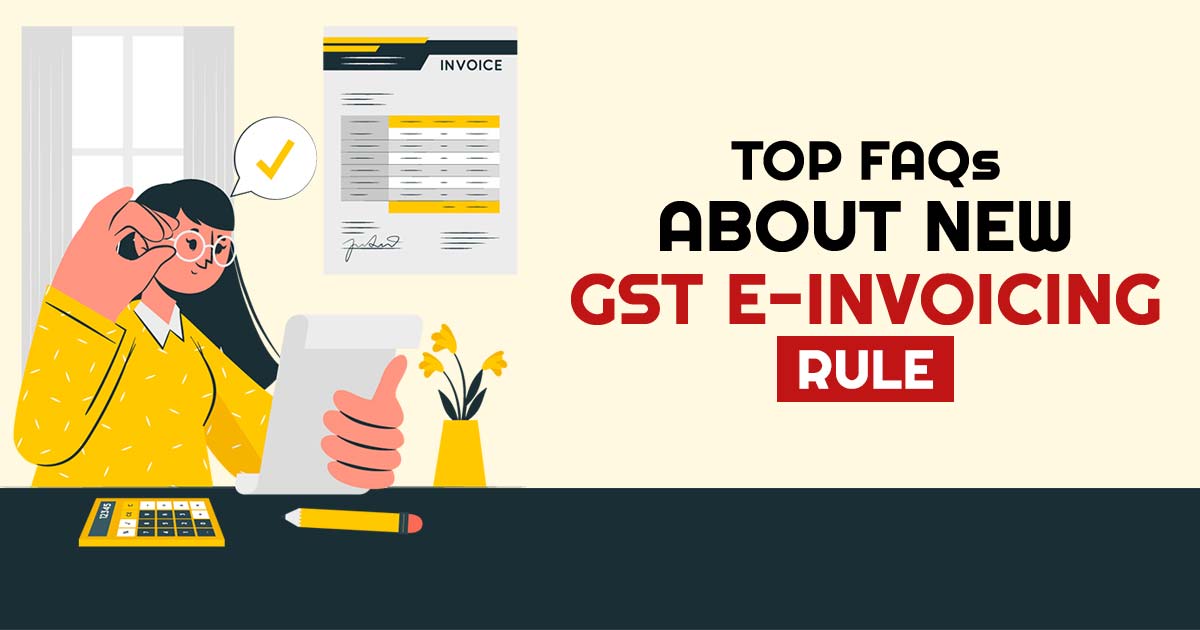
The system of GST law would have been changed over time and is regular. There are various amendments that were circulated in the month of July 2022 and post to that on the date of 1st August 2022 there is another revision that has been declared.
It is about the GST notification 17/2022 (Central Tax) on 01.08.22. This notification draws the revisions in the turnover limit for compulsory E-Invoicing.
GST E-invoicing System Complete Journey
| Phase Record | Applies to taxpayers with an aggregate turnover over the following in any of the preceding years since GST. | Applicable Date on Companies |
|---|---|---|
| 1 | INR 500 Crore | 1st Oct 2020 |
| 2 | INR 100 Crore | 1st Jan 2021 |
| 3 | INR 50 Crore | 1st Apr 2021 |
| 4 | INR 20 Crore | 1st Apr 2022 |
| 5 | INR 10 Crore | 1st Oct 2022 |
From the above table, it is evident that if your aggregate turnover exceeds Rs 10 cr in any former year from the time of the GST start then e-invoicing will be compulsory for you from the date 1/01/2022.
What is GST E-invoicing?
E-invoicing renders B2B invoices that are authenticated electronically via GSTN for use on the GST portal. Beneath the GST electronic invoicing system an identification number would get provided with respect to every invoice via the Invoice Registration Portal (IRP) which is to be handled via the GST Network (GSTN).
GST E-Invoicing Not Applicable
The provision of e-invoicing would not be applicable to the below-mentioned class of GST-enrolled individuals whatever the turnover:
- An insurer or a banking company or a financial institution, including an NBFC
- SEZ unit
- Goods Transport Agency (GTA)
- Multiplex services
- Passenger Transportation Services
- Government Department and Local Authority
What Would be the Supplies Covered and not Covered Under the GST E-invoicing?
| GST E-invoicing Criteria | Out from GST E-invoicing Criteria |
|---|---|
| B2B Supplies | B2C Supplies |
| Export including Supplies to SEZ | Nil-rated supplies |
| Deemed Export | Exempt Supplies |
| Debit Note / Credit Note (under Section 34 of the CGST) | Debit Note / Credit Note excluding under Section 34 of the CGST (financial or commercial credit notes) |
Some of the Common Questions Regarding GST E-invoicing
In the below-specified section, some of the common questions that are concerned with e-invoicing are.
Q1. Could I Change the Information on the Reported GST E-invoicing for Which the IRN was Generated?
- The revisions would not be feasible on the IRP. any revision in the information of the invoice reported to IRP could be taken out on the GST portal during the filing of the GSTR-1. For the case, GSTR-1 would have been furnished to utilize the process of the revision as given beneath GST.
- Such revisions will be told to the proper officer for the information.
Q2. Is it Possible to Cancel an IRN/invoice Reported to IRP?
- Yes, through the cancel API the cancellation required could get initiated within 24 hours from the reporting time of the invoice to IRP. IRN cancellation shall not get allowed if the linked e-way bill is active or the officer verified it while transiting. For the case of IRN cancellation, GSTR-1 would be updated through the same cancelled status.
Q3. Is there any Chance to Repeat the use of the Invoice Number of the Cancelled IRN?
- No. once the IRN gets cancelled the related invoice number does not be used again for the generation of the other GST e-invoice/IRN (even within the permitted cancellation window). It would be denied if it gets uploaded on IRP on repetitive usage.
- The same is due to the IRN securing a unique string based on the supplies GSTIN, Document Number, Type of Document & Financial Year.
Q4. Could I Partially Revoke a Reported Invoice?
- No, It has to be revoked in toto. There is no partial cancellation of the notified e-invoice permitted. Accounting standards and any additional applicable complaints control the cancellation of the invoices.
Q5. For the invoice, I have generated IRN. There is a difference in the invoice and the supply indeed it does not materialize, hence, I need to revoke the same in my system. but, I can not revoke the IRN on IRP as the cancellation window (24 hours) has expired. What shall I do for the same?
- It is a legal need to take IRN by the notified assessee prior to the issuance of the mentioned documents to the recipients. On the IRN generation, the revisions would not be possible on IRP and the IRN cancellation would exclusively be allowed within the time window. Hence the information of the invoices actually furnished in the duration of tax would be obligated to be notified in the GSTR-1.
- GSTR-1, final and self-assessed statutory statement of outward supplies via the assessee, in the finish of the tax duration. In the e-invoices auto-populated in GSTR-1 tables, the assessee would remove the information, wherever needed, according to the documents actually revoked in the tax duration.
Read Also: How Digitalisation & GST e-Invoicing Speed up Tax Compliance
You can approach your billing software company as soon as possible if you come beneath the new turnover limit of e-invoicing.









